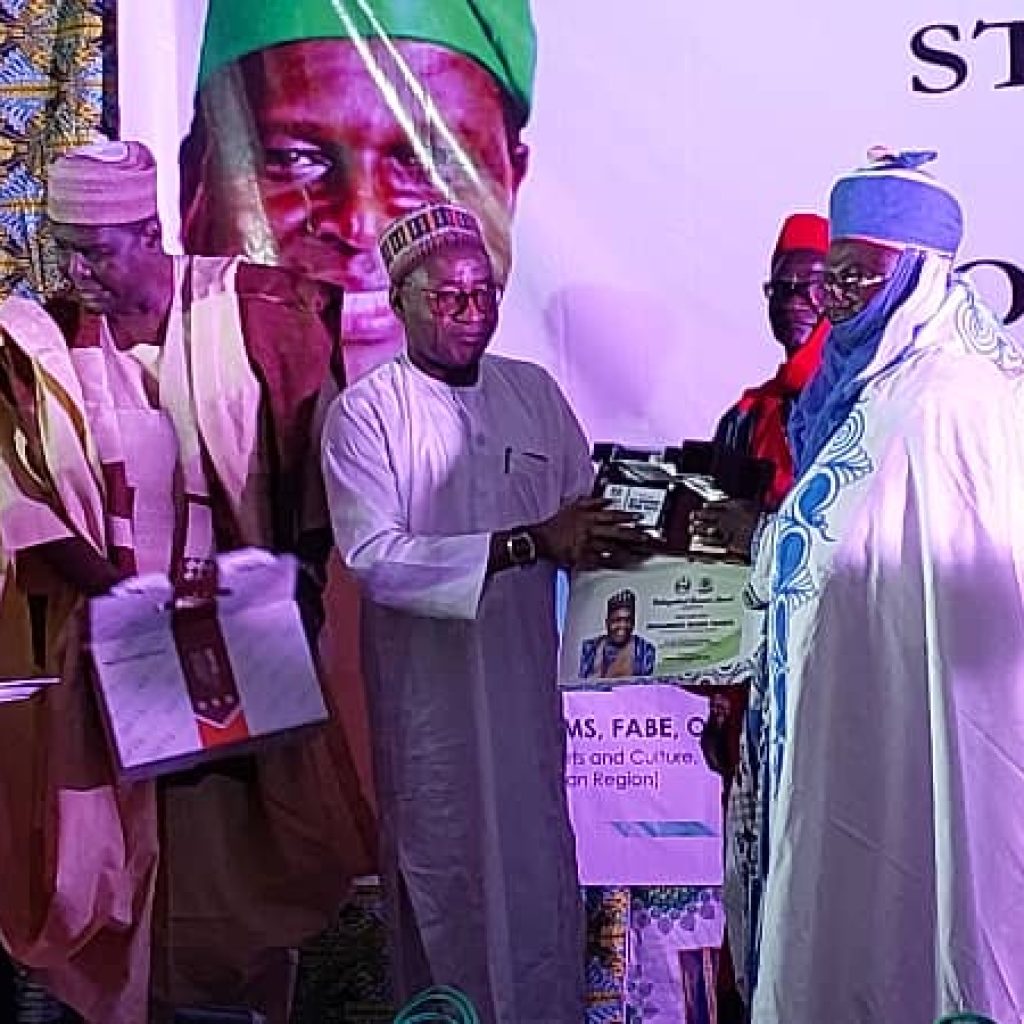
Preamble A National Stakeholders’ Review Conference on the National Festival of Arts and Culture (NAFEST) was held by the National Council for Arts and Culture (NCAC) at Chida Hotel, Jabi, Abuja from Tuesday 5th to Friday 8th December, 2023.
The conference brought together various stakeholders in the Arts and Culture sector, including Commissioners and Directors of Culture/History Bureaux in the 36 States and Federal Capital Territory (FCT); members of professional associations in the culture sector, the media and members of the public.2.0 Objectives of the Conference The objectives of the conference were to: Reflect on the past 35 editions of the festival with a view to assessing its strength and weaknesses; how it has fulfilled its goals of uniting the nation as well articulate strategies for improving on its content and form.Come up with policy framework/agenda for: Aligning the festival with the Renewed Hope Agenda of this administration.
Enhancing the visibility of the culture sector and reposition it as a key player in the nation’s economy. Set agenda for the State Art Councils/History Bureaux on: Development of craft markets in the states;Emphasizing the development of one iconic cultural product in which they have comparative advantage.Areas to explore for funding assistance and partnership.Platforms available for international cultural exchanges and training programmes, etc. Packaging, marketing and promotion of Nigerian arts for value addition.Come up with a national blueprint for uniformly driving the Arts, Culture and the Creative Industry sector to engender employment generation and wealth creation, and galvanizing the socio-economic growth of Nigeria.
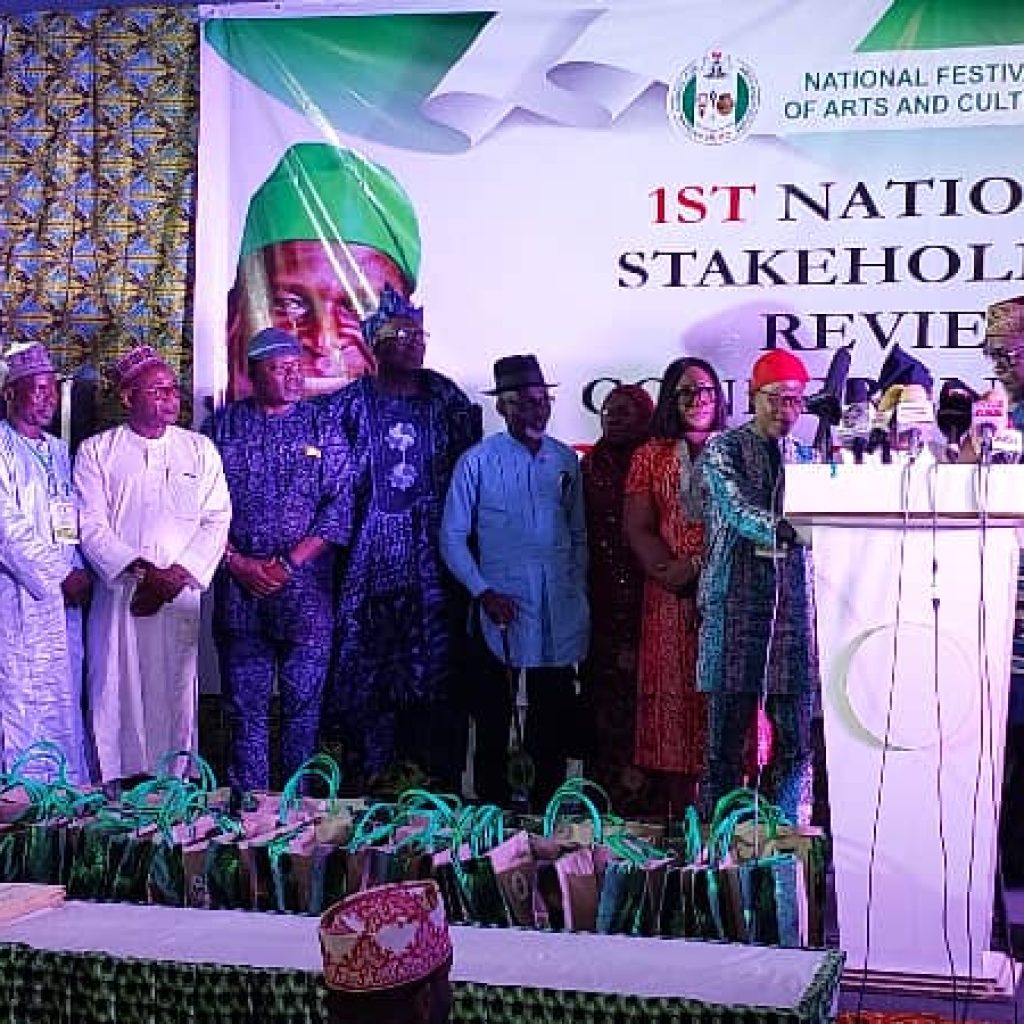
3.0 Content A total of three papers were presented at the plenary session thus:Culture As a Tool For Revamping the Economy: An Agenda Setting. By Otunba Olusegun Runsewe (OON), Director General of the National Council for Arts and Culture.E-Marketing Cultural Content Beyond Borders: By Mrs. Franca Idemudia of Clevenard Global Media International.Explore, Understand, and Appreciate Nigeria Culture Through Photography: By Mr. Ade Dayo. 4.0 Opening The opening started with the rendition of the Nigerian National Anthem at about 11:30am, followed by the introduction of participants.
The Director General of the National Council for Arts and Culture, Otunba Olusegun Runsewe (OON), in his opening remarks, expressed appreciation to God for the journey mercies granted participants. He said the programme was a National Conference whose outcome would be made available to all the states as a blueprint for moving the culture sector forward.
He stated that the time had come for all stakeholders in the sector to wake up from their slumber and take the challenge of using culture to drive the nation’s economy with all seriousness, noting that the future of the country depends on the sector. He concluded by calling on all participants to take the conference seriously and make maximum use of the programme duration.
The conference broke into eight syndicate groups where aspects of these papers were exhaustively discussed and reports made to the 2nd plenary session for further review and interrogation. 5.0 Technical Session The first presentation was made by Franca Idemudia. She started by stating that Culture and Tourism are inseparable. She pointed out that Nigeria is magnificently endowed with Arts, Culture and Tourism resources that could be harnessed to drive the process of economic development.
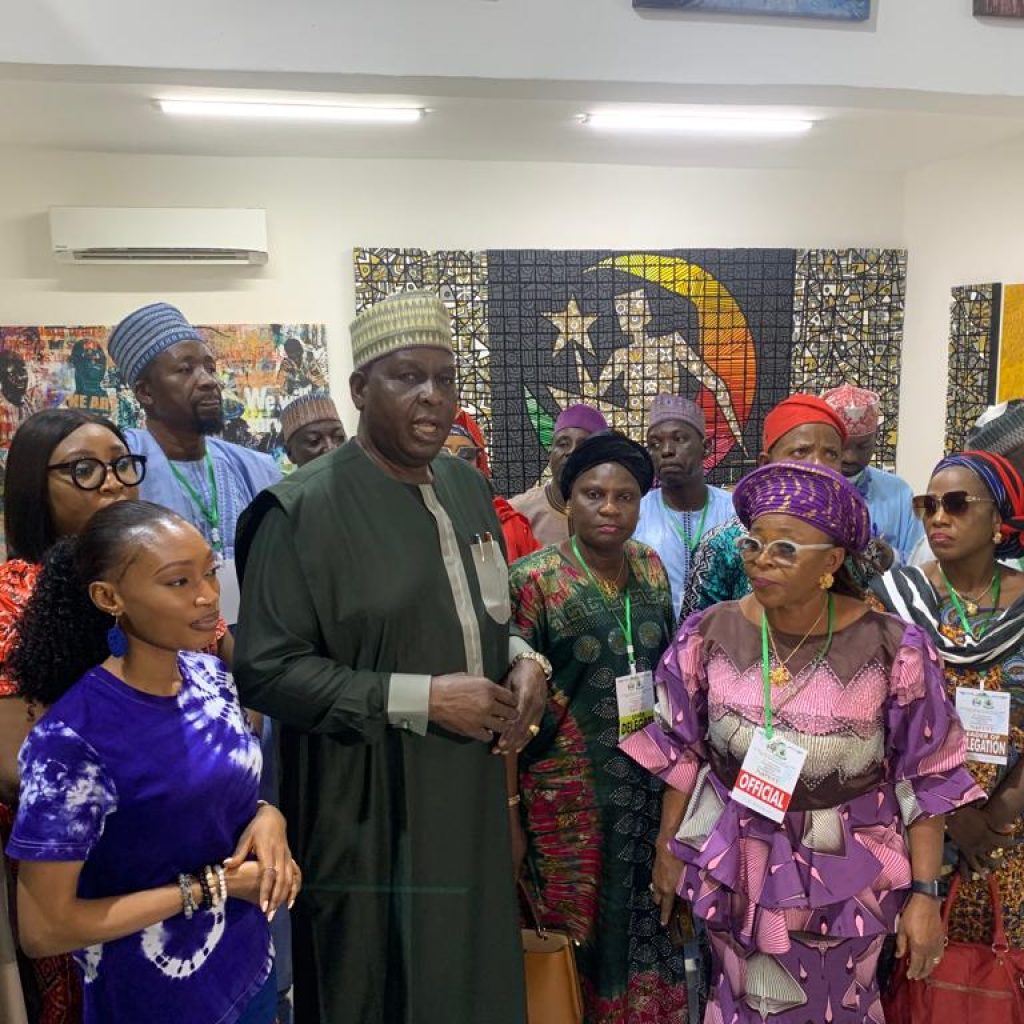
To sell Nigerian Culture and Tourism resources, we need to leverage on the opportunities offered by the internet platform adding that Clevenard.com could be deployed to promote Nigeria culture and tourism sector, globally. She added that the Culture and Tourism sector can contribute to the growth of the Nigerian economy more than the Oil Sector and called on stakeholders to explore the platform of clevenard.com to market and promote Nigeria’s rich and diverse cultural resources. She concluded that the sector can reach Nigerians in the Diaspora and the entire global cultural market with her cultural resources through online platforms. The second presentation titled Explore, Understand and Appreciate Nigerian Culture Through Photography was made by Ade Dayo. He said that online pictorial posts can go a long way in promoting and marketing Nigerian iconic cultural products. He stated that there is more Nigeria stands to gain from the Arts and Culture sector than the Oil and Gas sector, citing the examples of destination like Fari Ruwa in Nasarawa State, the Olumo Rock in Ogun State, Mambila Plateau in Taraba State, Ogbunike Cave in Anambra State, the Creeks of Bayelsa, amongst other iconic sites.He also pointed out that all these resources can be documented and showcased to the world through careful packaging, using photography and other audio-visual technology. In addition, he emphasized that Nigeria can tell its cultural story and promote its cultural products through the platform of photography and foster inter-cultural understanding and exchanges. He recommended that all Art Councils/History Bureaux in the states should develop and maintain functional websites that can be assessed globally.
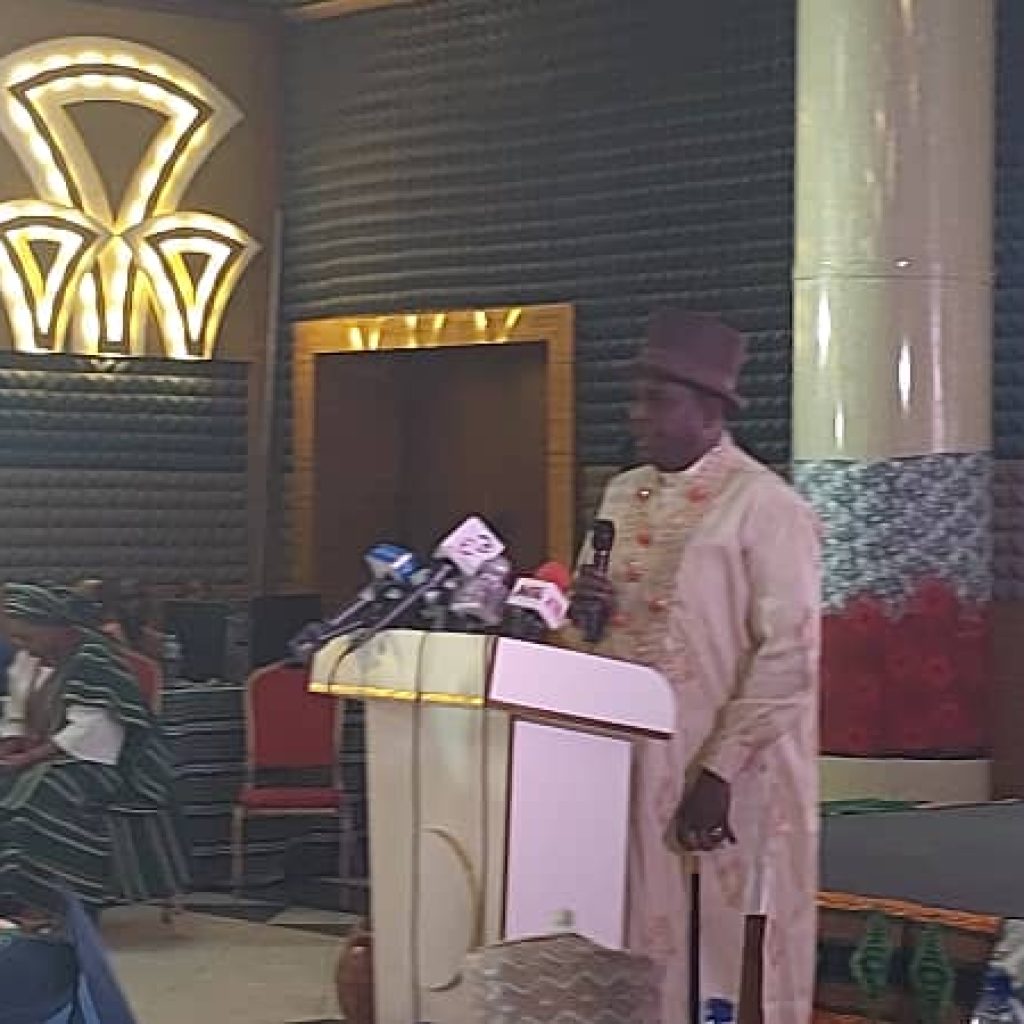
Mr. Ade Dayo strongly demanded that the practice of using foreign cultures like the Scottish pipers to welcome our president or visiting Heads of States to Nigeria should be discouraged. Rather, Nigerian cultural motifs like the Ijele Masquerade from the East, Durbar from the North and the Talking Drum from the West should be deployed as Nigerian cultural alternative.
The Director General of the National Council for Arts and Culture delivered the keynote paper titled Culture As a Tool For Revamping The Economy: An Agenda Setting. He said that the vast resources in the Arts, Culture and the Creative Industry sector need to be carefully harnessed and productively channeled to engender wealth creation and economic diversification.He called on the participants from the states to work with their respective state governments to mainstream Skill Acquisition as part of the cultural programmes in the states; establish cultural markets to serve as one-stop-shops in the states and explore opportunities for funding to grow the sector.
He said that the National Council for Arts and Culture was in talks with the Bank of Industry (BOI) and the Central Bank of Nigeria (CBN) to make funds available to stakeholders in the sector at liberal terms, adding that the NCAC was also discussing with the Chinese government for at least 100 youths from each state in Nigeria to be trained in China as part of the efforts to benefit from Chinese expertise in science and technology.6.0 Syndicate Reports and Recommendations The reports of the eight syndicate groups were presented and subjected to robust, careful and critical scrutiny at the second plenary session.
At the end, the following resolutions were reached: Skill Acquisition is critical and strategic to the empowerment of stakeholders in the sector and the development of arts and culture industry. The conference therefore recommended skills acquisition training programme, especially for women, the youths and the physically challenged through structured processes of formal education, informal and traditional skill transfer, apprenticeship, etc.
Accordingly, Nigerian cultural products should be carefully packaged and aggressively promoted through platforms such as digital marketing, creation of galleries and the participation in travel markets, etc.
The conference observed that the concentration of the states in the development of one unique product in which they have comparative advantage will enable the states package and market the iconic product, attract investors, increase internally generated revenue, enhance public – private – partnership and reduce unemployment.
The conference therefore recommended that this strategic approach should be vigorously pursued by the states. The conference noted that cultural exchange programmes can engender unity in diversity, promote international diplomacy for peace, enhance the cross-fertilization of ideas and promote international trade. In light of this, it was recommended that there should be structured international exchange programmes and synergy between local and international NGOs to facilitate this process.
Funding for this could be sourced from government subventions, self-sponsorship, local and international donor agencies, among others. The conference also appreciated the efforts of the Director General of National Council for Arts and Culture for the proposed training of 370 youths from the 36 states and the FCT in China.The conference underscored the importance of cultural markets in the states as a means of employment and wealth creation, preservation of the rich cultural heritage of Nigeria and the establishment of one-stop-shop for cultural products.
Therefore, the establishment of cultural markets in the states to be domiciled in Ministry of Culture and Tourism was strongly recommended.The conference identified sources of funding of the culture sector to include government, the private sector, multinational organizations, development partners, donor agencies, charity organizations and lamented that government has never taken a deliberate step to fund the culture sector. It was, therefore, recommended that these sources of funding should be explored by the states while stakeholders like NATOP, NANTA, RATTAWU, etc. should work with relevant cultural agencies of government to mount sustained advocacy in order to push for the implementation of the National Endowment Fund for Arts.
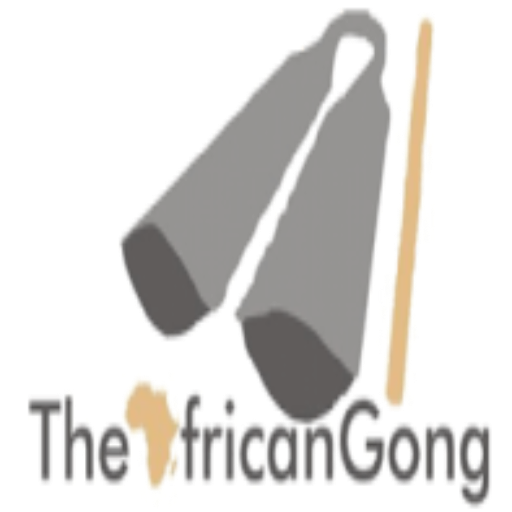
To achieve this, industry players must work together, and embark on programmes that will not only make them relevant, but indispensable stakeholders in the task of nation building. Noting that culture provides the content for the development of tourism, the conference stressed that culture and tourism are intricately interwoven and therefore inseparable.
Accordingly, the conference recommended that culture and tourism should remain as one Ministry both at the Federal and State levels to complement each other and contribute meaningfully to the diversification efforts of government and the Gross Domestic Product (GDP) of the nation.
The conference observed that leveraging technology and e-marketing presents a pivotal opportunity to project the culture sector to higher height. Consequently, it was recommended that the sector should develop marketing mindset, ensure adequate marketing of identified cultural products to attract relevant funding. Identified products should be properly packaged for presentation and sellability at the local and international market place.
Accordingly, states are encouraged to take advantage of e-marketing opportunities offered by ALEPH and CLEVENARD and other relevant social media platforms. The National Festival of Arts and Culture (NAFEST), a flagship programme of the National Council for Arts and Culture remains a veritable platform for fostering national unity, peace, mutual understanding and cooperation among Nigerians, irrespective of ethnic group, culture, creed, tribe or tongue. It should, therefore, be sustained and strengthened.
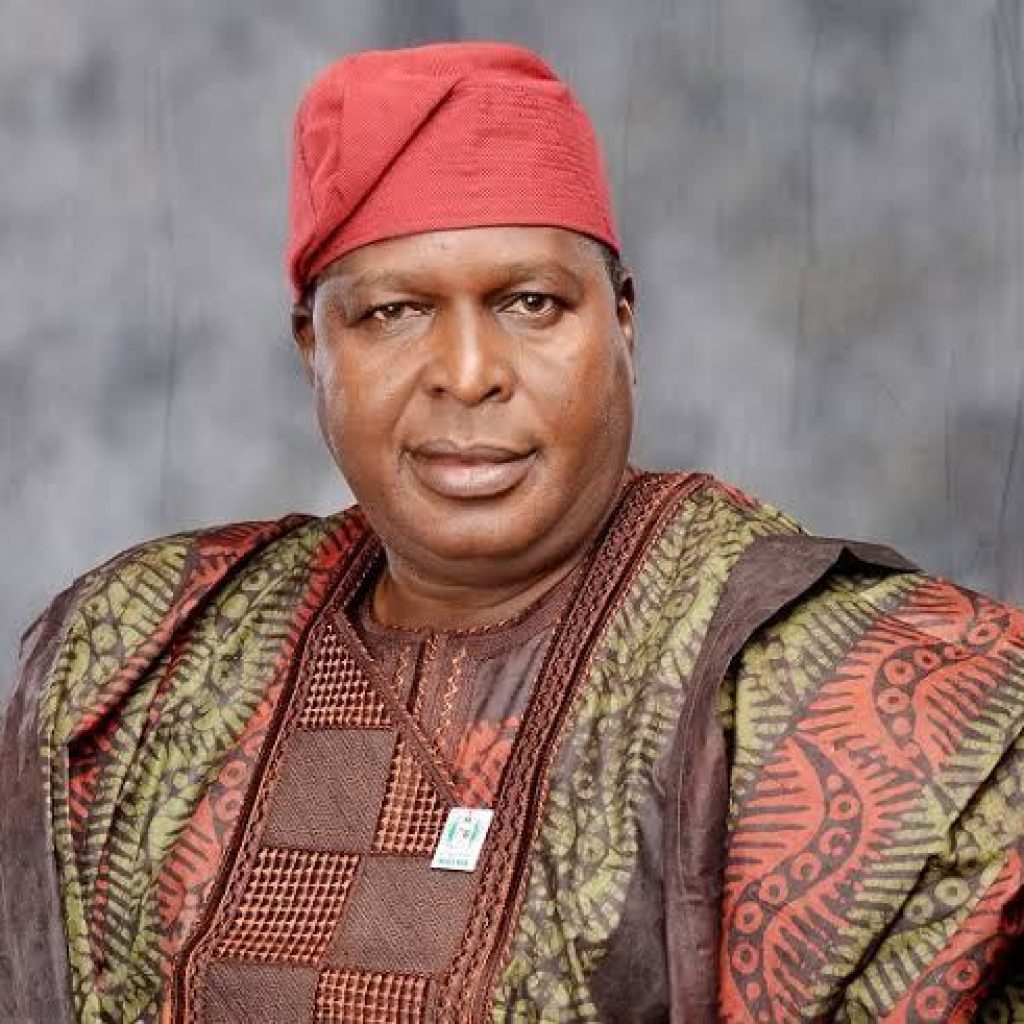
NAFEST should be developed to the status of a festival that needs no introduction and which encompasses all-year-round activities. The festival should target different relevant audience such as Diaspora Community, members of the academic community and the tourism sector, etc. Programmes which can boost economic activities in the states should be introduced into the festival in a way that missing the hosting of the festival by a state would amount to missing a life-time economic opportunity.
7.0 Conclusion Participants commended the leadership role of Otunba Olusegun Runsewe (OON), the Director General of the National Council for Arts and Culture in the sector and noted that he has brought his wealth of knowledge, dynamism and innovation to bear on galvanizing the sector to greater visibility and development. The NCAC DG and his management team were specifically appreciated for evolving the First National Stakeholders’ Review Conference on NAFEST after 35 editions to enable stakeholders interact, brainstorm and articulate a blue print for successfully driving the sector. Participants were encouraged to take the outcomes of the conference seriously by commencing the implementation of these recommendations promptly.
Communique Drafting Committee Members
Gerald Adewole; Ph.D – Chairman
Emeka Nwosu; Ph.D – Member
Dennis Olofu; Ph.D – Member
Simeon Sunday – Secretary
Usman Dakwoyi – Support Staff


